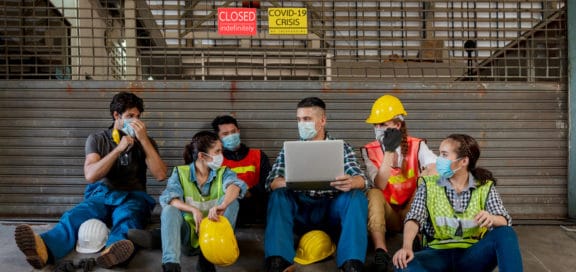Claims for Restitution can Threaten People’s Livelihoods
Many tickets that have already been purchased for various leisure events cannot be redeemed due to the necessary cancellations. Due to Corona, museums, leisure parks or swimming pools may not be opened. Visits are not possible. Holders of admission tickets or usage authorizations would be entitled to demand a refund of the entry price or fee from the event organizer or operator. In this case, organizers and operators would face a considerable cash outflow. As they also have hardly any new income as a result of the crisis, a situation threatening the livelihood of many of them has arisen.
Against this background, the voucher system seems to make sense. On the other hand, it also creates disadvantages for consumers. In addition, some important points, such as major events, such as trade fairs, etc., are not covered. Furthermore, flight and travel cancellations are not yet regulated either.
What is Covered by the Regulation
If a music, cultural, sports or other leisure event is cancelled due to the Corona pandemic, or if a business in this field has to shut down due to the virus, the organizer should be allowed to compensate customers with a voucher. The following applies in this context:
- The voucher’s value has to cover the entire entrance fee including advance booking fees.
- No costs may be charged for issuing or sending the voucher.
- The voucher has to be redeemable for a catch-up event or for an alternative event.
- Regarding season tickets for football matches or swimming pools or in the event of business interruptions for language schools, sports studios or creative courses, the voucher shall be offset pro rata according to the closing period or the cancelled dates.
Duration of Validity
The new regulations apply to tickets purchased before March 8, 2020 and to leisure contracts concluded before this date.
The vouchers are to be limited until the end of December 2021. Those who do not redeem their voucher by then will get their money back.
To Whom Should the Regulation Not Apply?
Further vocational training or specialist seminars are explicitly not covered. This is because these are often so expensive that one would not want to impose the liquidity risk on the participants.
This is a clear contradiction to other legislative projects, which expressly want to protect business owners. It is not clear why differences are made here. Furthermore, there are other organizers who are not covered by the wording of the law. Improvements will certainly have to be made here.
Hardship Provision
People who are dependent on the money or who, for other reasons, cannot reasonably be asked to wait should be able to demand a payout as a hardship case. The emergency situation has to be proven to the organizer.
This is also a difficult arrangement and forces the consumer to make possibly embarrassing declarations. But at the same time the business owner himself is protected precisely because of this hardship case.
The law, which is basically good, is not thought through to the end here, either.
What Happens in Case of Insolvency?
If the organizer becomes insolvent, the consumer is not protected.
Since a considerable increase in insolvencies is to be expected despite this protection act and other reasonable measures taken by the Federal Government as a result of the Corona crisis, further protection is absolutely necessary, for example a warranty for insolvency loss or similar.
All Expense Tours and Flights
A voucher system is also still planned for all expense tours and flights. However, this still needs to be coordinated with the EU. And even in these cases, it remains to be seen what will be regulated in the event of insolvency.
Practical Tip:
Affected companies should prepare the possible vouchers as far as possible already now to meet the rush demand of their customers.
Depending on the event and the service, vouchers should be prepared in different ways.
It is also noteworthy that the voucher must be issued to the customer including any advance booking fees.
According to experience, a high proportion of vouchers are not redeemed in the subsequent period.











